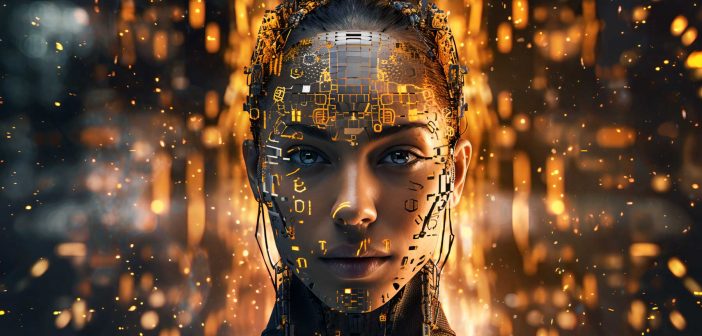Artificial intelligence (AI) is rapidly transforming our world, impacting everything from healthcare and finance to transportation and entertainment. While some may view AI with apprehension, the reality is that this technology offers immense potential to improve lives and drive economic growth. To ensure India actively participates in this revolution, a crucial step is integrating basic AI literacy into the education system and employee training programs across all sectors.
Equipping Students with the Tools of Tomorrow:
- Demystifying Technology: Many students in India have limited exposure to AI. Introducing basic AI concepts in high school curriculums will foster curiosity and understanding. Students will learn about machine learning, algorithms, and data analysis – the building blocks of AI.
- Developing Critical Skills: AI education goes beyond technical knowledge. By working with AI tools, students develop crucial 21st-century skills like critical thinking, problem-solving, and data analysis. These skills are essential for success in any future career path.
- Fostering Innovation: Exposure to AI can spark a passion for technology and innovation in young minds. This can lead to a future generation of Indian engineers, scientists, and entrepreneurs who will be at the forefront of AI development.
Upskilling the Workforce for the AI Age:
- Adapting to Change: AI is already automating tasks across industries. Employees, regardless of their field, need to be prepared for this shift. Basic AI training can help them understand how AI can complement their work and identify opportunities for collaboration with AI systems.
- Enhancing Efficiency and Productivity: AI can automate repetitive tasks, freeing up employee time for more strategic thinking and creative problem-solving. Training can equip employees with the skills to leverage AI tools to improve efficiency and productivity in their roles.
- Building a Competitive Workforce: Incorporating AI training demonstrates that a company is forward-thinking and committed to employee development. This can be a significant advantage in attracting and retaining top talent in the competitive Indian job market.
Building a Future-Ready India:
By integrating basic AI literacy into schools and workplaces, India can create a future-ready generation. Students will graduate with the skills to thrive in the AI-driven economy, while employees will be empowered to adapt and collaborate with intelligent systems. This focus on AI education and training will ensure that India remains at the forefront of innovation and economic prosperity in the years to come.
Challenges and Considerations: Building a Responsible AI Future
While the benefits of AI are undeniable, it’s important to acknowledge the challenges that come with its widespread adoption. Here are some key considerations for integrating AI into Indian education and workplaces:
- Addressing the Digital Divide: Unequal access to technology could exacerbate existing inequalities. It’s crucial to ensure all students and employees have the infrastructure and resources needed to participate in AI education and training.
- Promoting Ethical AI: AI algorithms can perpetuate biases if not carefully designed. Education and training should emphasize responsible AI development and use, focusing on fairness, transparency, and accountability.
- Managing Job Displacement: Automation through AI could lead to job losses in some sectors. Training programs need to equip workers with the skills to transition to new roles or adapt their existing skillsets for the AI-driven economy.
- Data Privacy Concerns: AI relies heavily on data. Education and training should address data privacy concerns, ensuring individuals understand how their data is collected, used, and protected.
Conclusion
Building a future-ready India requires a multi-pronged approach. By integrating basic AI literacy into schools and workplaces, fostering a culture of responsible AI development, and investing in reskilling and upskilling initiatives, India can harness the power of AI to create a more prosperous, inclusive, and innovative future for all its citizens.





